Improve “quality of life” without medication: Conversations with the Providers
The world we live in can be quick to offer medication as the first choice and “clear all” for many issues – from pain symptoms to depression and mental health, and even for diet-related conditions.
What if there are other options?
We want to explore what those other options are and how accessible they can be. In our previous conversation with Dr. Ben Aiken, we learned about the new wave of direct primary care and how he is using this model to change the healthcare system.
Now we are talking with Dr. JoJo Yonce, whose personal experiences led him into the world of Neurofeedback Therapy. Join Chris Taylor, PT, and Dr. Yonce as they discuss “quality of life”, mental health, and the pursuit of making quality healthcare accessible without dependency on medication.
What is “quality of life”?
qual·i·ty of life: the degree to which an individual is healthy, comfortable, and able to participate in or enjoy life events.
Quality of life (QOL) is a broad multidimensional concept that usually includes subjective evaluations of both positive and negative areas of living. QOL can be challenging to measure because every academic discipline, individual and group can define it differently. Although health is one of the fundamental domains of gauging quality of life, there are other facets to consider. For instance — jobs, housing, schools, diet, and interpersonal relationships, aspects of culture, values, and spirituality are also key domains of overall quality of life that add to the complexity of its measurement.
Quality of life is highly subjective. Whereas one person may define their QOL according to wealth or satisfaction with their work, another person may define it closer to their level of mental or physical health. A disabled person may report a high quality of life, whereas a healthy person who recently lost a job may report a low quality of life.
How would you rate your current healthcare in terms of your quality of life?
